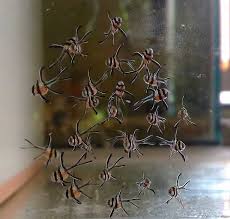
Feng Shui, an ancient Chinese practice, has been used for thousands of years to optimize the energy flow within a space, ensuring that it supports the well-being, prosperity, and health of its inhabitants. The principles of Feng Shui are based on the belief that the environment has a direct influence on a person’s energy, mood, and overall fortune. In the case of royal palaces, where the emperor and empress live, work, and rule, the application of Feng Shui is crucial to ensure not only the physical well-being of the royal family but also the prosperity and stability of the entire kingdom.
The arrangement of living spaces in a palace must be done meticulously to foster a harmonious flow of energy (Qi), balance the elements, and promote peace, health, and success. From the positioning of bedrooms to the design of reception halls and courtyards, every space must be strategically planned in accordance with Feng Shui principles.
This article explores how to arrange various living spaces in a royal palace following the principles of Feng Shui. By understanding the importance of space, energy flow, and elements, we will discover how to create an environment that enhances well-being, harmony, and prosperity for the royal family.
1. The Role of Feng Shui in Palace Design
In the context of a palace, Feng Shui is not merely about aesthetic appeal; it’s about the energetic balance of the environment. Every palace has a symbolic meaning that reflects the power and stability of the kingdom. As such, the design of the palace directly impacts the mood, health, and decision-making abilities of the royal family. Proper arrangement of the living spaces according to Feng Shui ensures that energy flows smoothly throughout the building, enhancing prosperity, good fortune, and harmonious relationships.
The arrangement of spaces should encourage positive energy while minimizing negative influences. Feng Shui can impact areas such as:
- Personal spaces (bedrooms and private quarters),
- Social spaces (reception areas and gathering rooms),
- Public spaces (courtyards, gardens, and halls for ceremonial events),
- Work spaces (offices and study areas).
2. The Commanding Position and Qi Flow
One of the most important principles in Feng Shui is the commanding position. This refers to the placement of furniture, particularly the bed and desk, in such a way that the occupant can see the door without being directly in line with it. This positioning provides a sense of security and control, which is crucial in a palace setting where the royal family needs to feel empowered and safe.
The commanding position can be applied to various spaces:
- In the bedroom, the bed should be placed in a position where the person can see the door but should not be directly in line with it. This helps promote restful sleep and a sense of security. In royal bedrooms, where the emperor or empress sleep, this arrangement is vital for their mental clarity and decision-making abilities.
- In workspaces (study rooms, offices, or throne rooms), desks should be placed where the occupant has a full view of the room and any doors or windows. This arrangement creates a feeling of control and fosters a clear mind, allowing the ruler to make strategic and informed decisions.
- In dining rooms and living rooms, seating should be arranged so that the people present are not facing directly towards a door, as this can create an uncomfortable or confrontational atmosphere.
3. The Importance of Entrance and Entryways
The entrance of the palace, often referred to as the mouth of Qi, is considered one of the most important areas in Feng Shui. It is through the entrance that energy enters the space, influencing the overall energy of the entire palace. Therefore, careful thought must go into the design and arrangement of doorways and entryways.
- Main entrance: The front door should be large and grand, symbolizing the emperor’s authority and the prosperity of the kingdom. However, it should not be directly in line with any windows or back doors, as this creates an imbalance of energy. The palace gates should also face a favorable direction according to the Kua number of the emperor, ensuring that the flow of energy is in harmony with the ruler’s personal energy.
- Secondary entrances: While secondary entrances may be used by servants or for less formal occasions, they should also be carefully placed to ensure that Qi does not enter in a disruptive manner. Secondary doors should not face the primary entrance directly, as this could cause energy to flow too rapidly, leading to chaos and disorder.
The courtyard or main hall immediately inside the entrance plays a key role in welcoming and collecting energy. This area should be open and spacious, allowing Qi to accumulate and flow throughout the building.
4. Arranging Bedrooms for Rest and Rejuvenation
The placement of the royal bedrooms is critical in Feng Shui, as the bedroom is considered a space of rest, rejuvenation, and vitality. For the royal family, the emperor’s and empress’s bedroom need to be placed in a way that supports restful sleep, physical health, and mental clarity.
- Positioning of the bed: As mentioned earlier, the bed should be placed in the commanding position, away from the door and with a solid wall behind it for support. This arrangement allows the ruler to rest deeply, ensuring that they are rejuvenated for the next day’s tasks. In the case of the emperor and empress, it’s important that they feel a sense of stability and control even while they sleep.
- Energy flow: Bedrooms should be designed to be peaceful and calming, which can be achieved by using soft colors such as pale blues, pinks, or neutral tones. Bright, stimulating colors should be avoided, as they can disrupt rest. Additionally, the use of heavy curtains to block light at night is crucial for ensuring a full, uninterrupted rest cycle.
- Mirrors: Mirrors should not be placed directly facing the bed. In Feng Shui, mirrors facing the bed can cause restlessness, disrupt sleep, and even reflect negative energy back into the room. The royal bedrooms should have mirrors placed in appropriate positions, such as in a dressing area, to ensure that the energy remains harmonious.
5. Living and Dining Spaces: Creating Harmony for Social Interactions
The arrangement of living spaces such as the living room and dining room is important for promoting harmony and healthy social interactions within the royal family and with guests. These spaces should be designed to encourage positive communication, collaboration, and mutual respect.
- Seating arrangements: The seating should be arranged in a way that encourages face-to-face interaction without creating an overly confrontational or competitive atmosphere. Sofas and chairs should be placed in groups where people are seated in the commanding position and can see the room’s entrance.
- Dining area: The dining table should be large enough to accommodate the entire royal family and any guests, symbolizing abundance and unity. A round or oval table is often preferred in Feng Shui, as it promotes equality and harmony between individuals. Square or rectangular tables, though common, can create an uneven distribution of energy and should be avoided.
- Use of color: In the living and dining areas, soft, harmonious colors should be used to promote relaxation and positive energy. Earth tones, such as beige, light yellow, and soft greens, are considered ideal in Feng Shui as they promote stability and calm. Bold colors, like red or gold, should be used sparingly to avoid overstimulation.
6. The Role of Water Features in Feng Shui
Water is considered an essential element in Feng Shui, symbolizing wealth, abundance, and flow. In palaces, water features such as fountains, ponds, and indoor waterfalls are often incorporated to enhance the flow of Qi and create an auspicious environment.
- Water in the front garden: A well-placed fountain or pond at the entrance of the palace can attract positive energy and wealth. However, it is important that the water flows gently toward the building rather than away from it, symbolizing the attraction of wealth and prosperity into the royal household.
- Indoor water features: In royal palaces, indoor water features such as decorative ponds or small fountains may be placed in reception areas or private rooms. The sound of gently flowing water is believed to calm the mind and promote a peaceful atmosphere, making it an ideal element for spaces where the royal family gathers for relaxation or decision-making.
7. The Importance of Gardens and Outdoor Spaces
Gardens and outdoor spaces are vital to a palace’s Feng Shui, as they serve as areas for relaxation, rejuvenation, and reflection. Gardens also symbolize the connection between the royal family and the natural world, allowing them to maintain harmony with the environment.
- Layout of gardens: The garden should be designed with balance and symmetry in mind. Paths should flow in gentle curves rather than harsh, angular lines to maintain smooth energy flow. The inclusion of plants that symbolize prosperity, such as bamboo or peonies, can further enhance the palace’s Feng Shui.
- Use of plants: Flowering plants in vibrant colors such as red, orange, and purple represent abundance and joy. Bamboo is often used in Feng Shui as a symbol of strength, vitality, and flexibility. The arrangement of plants should be done in a way that promotes a healthy energy flow and encourages tranquility.
8. Conclusion
The arrangement of living spaces in a palace according to Feng Shui principles plays a crucial role in ensuring the well-being, prosperity, and success of the royal family. By paying attention to the placement of furniture, the flow of energy, and the integration of natural elements such as water and plants, the palace can become a harmonious environment that supports both physical and mental health, encourages wealth and prosperity, and fosters peaceful relationships among the royal family.
By integrating Feng Shui into the palace’s design, the royal family not only ensures a peaceful and prosperous life for themselves
but also sets a powerful example for the kingdom, creating an environment that promotes harmony, prosperity, and vitality for all.









